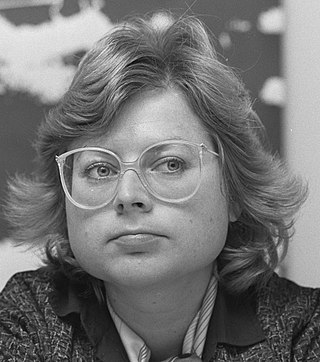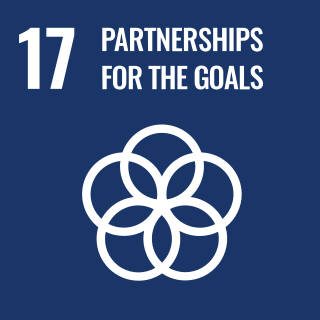This biographical article is written like a résumé .(October 2020) |
Thomas Gass is a Swiss diplomat who currently serves as Ambassador of Switzerland to the Socialist Republic of Viet Nam. [1]
This biographical article is written like a résumé .(October 2020) |
Thomas Gass is a Swiss diplomat who currently serves as Ambassador of Switzerland to the Socialist Republic of Viet Nam. [1]
Gass holds a PhD in natural sciences and an MSc in engineering diploma in agricultural sciences, both from the Swiss Federal Institute of Technology in Zurich (ETH). He prepared his Baccalaureate in Mathematics and Physics at the Externat Notre Dame in Grenoble, France.
From 2018 to 2022, Gass served as Assistant Director General and Head of the South Cooperation Department of the Swiss Agency for Development and Cooperation. [2] During this period, from 2019-2022, he was also Co-Chair of the Global Partnership for Effective Development Co-operation, and in this capacity oversaw the organisation of the Partnership's Summit, held 12-14 December 2022, in Geneva. [3]
From August 2013 to December 2017, Gass served as the United Nations Assistant Secretary-General for Policy Coordination and Inter-Agency Affairs in the United Nations Department of Economic and Social Affairs (UN DESA). During this period, he was involved in the preparation of the 2030 Agenda for Sustainable Development and its Sustainable Development Goals. He was also an ex officio member of The UN Secretary-General's Independent Expert Advisory Group on a Data Revolution for Sustainable Development (IEAG) which produced the report "A World That Counts: Mobilising The Data Revolution for Sustainable Development". [4]
From 2009 to 2013, Gass served as Head of the Mission of Switzerland to Nepal (Ambassador and Country Director of the Swiss Agency for Development and Cooperation), where he led the establishment of the Embassy of Switzerland in Nepal, and ensured the delivery of a development cooperation programme of up to 33 million dollars a year. He also chaired the Donors of the Nepal Peace Trust Fund, the main instrument for international support to Nepal’s peace process.
From 2004 to 2009, Gass served as Head of the Economic and Development Section at the Permanent Mission of Switzerland to the UN in New York, where he represented Switzerland’s interests, in particular in the Economic and Social Council (United Nations Economic and Social Council (ECOSOC), its subsidiary Commissions, the General Assembly and the Executive Boards of the major UN Funds and Programmes. During this time, he chaired the Donor Group of the UN Global Compact. In 2006, he served as Vice-President of the Western European and Others Group of the United Nations Commission on Population and Development and in 2008 he was appointed the Vice-President of the Executive Board of UNDP/UNFPA. [5] In 2007, he successfully facilitated a United Nations resolution on the quadrennial comprehensive policy review (QCPR), the periodic review of the General Assembly operational system for development.
Earlier in his career, Gass served as Policy and Programme Officer for the Swiss Agency for Development and Cooperation, as Deputy Resident Representative of the United Nations Development Programme (UNDP) in Guyana, and as Regional Director for Europe with the International Plant Genetic Resources Institute in Rome.
Gass is married and parent of three adult children.

Foreign relations of Kazakhstan are primarily based on economic and political security consideration. The Nazarbayev administration has tried to balance relations with Russia and the United States by sending petroleum and natural gas to its northern neighbor at artificially low prices while assisting the U.S. in the War on Terror. Kazakhstan is a member of the United Nations, Collective Security Treaty Organization, Organization for Security and Co-operation in Europe, North Atlantic Cooperation Council, Commonwealth of Independent States, the Shanghai Cooperation Organisation, and NATO's Partnership for Peace program. Kazakhstan established a customs union with Russia and Belarus which eventually became the Eurasian Economic Union. President Nazarbayev has prioritized economic diplomacy into Kazakhstan's foreign policy.

The United Nations Industrial Development Organization (UNIDO) is a specialized agency of the United Nations that assists countries in economic and industrial development. It is headquartered at the UN Office in Vienna, Austria, with a permanent presence in over 60 countries. As of April 2019, UNIDO comprises 170 member states, which together set the organization's policies, programs, and principles through the biannual General Conference.
The United Nations Development Programme (UNDP) is a United Nations agency tasked with helping countries eliminate poverty and achieve sustainable economic growth and human development. The UNDP emphasizes developing local capacity towards long-term self-sufficiency and prosperity.

Alicia Isabel Adriana Bárcena Ibarra is a Mexican biologist currently serving as her country's Secretary of Foreign Affairs. She previously served as the Executive Secretary of the United Nations Economic Commission for Latin America and the Caribbean (ECLAC) from July 2008 to March 2022.
UN-Energy is an interagency mechanism within the system of the United Nations related to energy. It was created after the 2002 World Summit on Sustainable Development in Johannesburg, and its purpose is to create a coherent approach towards a sustainable energy system especially in developing countries to meet the Millennium Development Goals.
The United Nations Sustainable Development Group (UNSDG), previously the United Nations Development Group (UNDG), is a consortium of 36 United Nations funds, programmes, specialized agencies, departments and offices that play a role in development. It was created by the Secretary-General of the United Nations in order to improve the effectiveness of United Nations development activities at the country level.

Eva Leonie "Eveline" Herfkens is a retired Dutch politician and diplomat of the Labour Party (PvdA) and activist.
The Global Water Partnership (GWP) is an international network created to foster an integrated approach to water resources management (IWRM) and provide practical advice for sustainably managing water resources. It operates as a network, open to all organisations, including government institutions, agencies of the United Nations, bi- and multi-lateral development banks, professional associations, research institutions, non-governmental organisations, and the private sector.

Kul Chandra Gautam is a distinguished diplomat, development professional, and a former senior official of the United Nations. Currently, he serves on the boards of several international and national organizations, charitable foundations and public-private partnerships. Previously, he served in senior managerial and leadership positions with the United Nations in several countries, in a career spanning over three decades. As a former deputy executive director of UNICEF and Assistant Secretary-General of the United Nations, he holds extensive experience in international diplomacy, development cooperation, and humanitarian assistance.

Rebeca Grynspan Mayufis is a Costa Rican economist who has been serving as Secretary General of the United Nations Conference on Trade and Development (UNCTAD) since 13 September 2021.

Israel Eliashiv is an Israeli diplomat who served as the country's ambassador to Singapore between 1987 and 1990.
The Global Forum on Migration and Development (GFMD) is a state-led, informal and non-binding process, which helps shape the global debate on migration and development. It provides a flexible, multi-stakeholder space where governments can discuss the multi-dimensional aspects, opportunities and challenges related to migration, development, and the link between these two areas. The GFMD process allows governments - in partnership with civil society, the private sector, the UN system, and other relevant stakeholders – to analyze and discuss sensitive issues, create consensus, pose innovative solutions, and share policy and practices.

In the United Nations, the Post-2015 Development Agenda was a set of talks and discussion that led to the creation of the 2016 Sustainable Development Goals. This replaced the 2015 Millennium Development Goals.
The Quadrennial comprehensive policy review (QCPR) of the operational system of the United Nations is a process and a United Nations General Assembly resolution by which the 193 members of the United Nations General Assembly review the coherence effectiveness and funding of the 27 UN development programmes, funds, and specialised agencies of the UN operational system for development. This review was conducted on a triennial basis until 2007. Since 2008 it has been conducted on a quadrennial basis.

Macharia Kamau is Kenya's Principal Secretary to the Ministry of Foreign Affairs. He previously served as Kenya's representative to the United Nations and as the former President of the UNICEF Executives Board.
Azerbaijan has been a member in the United Nations since March 2, 1992, after the UN General Assembly admitted Azerbaijan at its 46th session. The Permanent Mission of the Republic of Azerbaijan was opened in New York City in May 1992. On October 29, 1991, soon after gaining independence from the Soviet Union, Azerbaijan applied to the UN General Assembly for joining the organization. Azerbaijan was elected as a non-permanent member of the UN Security Council for the term of 2012–2013.

The Republic of Kazakhstan became a member of the United Nations on March 2, 1992. Kazakhstan was elected to serve on the UN Security Council for the 2017–2018 term. UN Secretary-General António Guterres in remarks to the UNSC recognized Kazakhstan's work to rid the world of weapons of mass destruction and global non-proliferation efforts.

Sustainable Development Goal 17 is about "partnerships for the goals." One of the 17 Sustainable Development Goals established by the United Nations in 2015, the official wording is: "Strengthen the means of implementation and revitalize the global partnership for sustainable development". SDG 17 refers to the need for the nonhegemonic and fair cross sector and cross country collaborations in pursuit of all the goals by the year 2030. It is a call for countries to align policies.
The Global Partnership for Effective Development Co-operation (GPEDC), formed in 2012, is an association of governments and organisations that seeks to improve practices of international development. It has a unique position due to the breadth and stature of its participants.

Mirjana Spoljaric Egger is a Swiss-Croatian diplomat. Since October 2022, she has served as the President of the International Committee of the Red Cross.